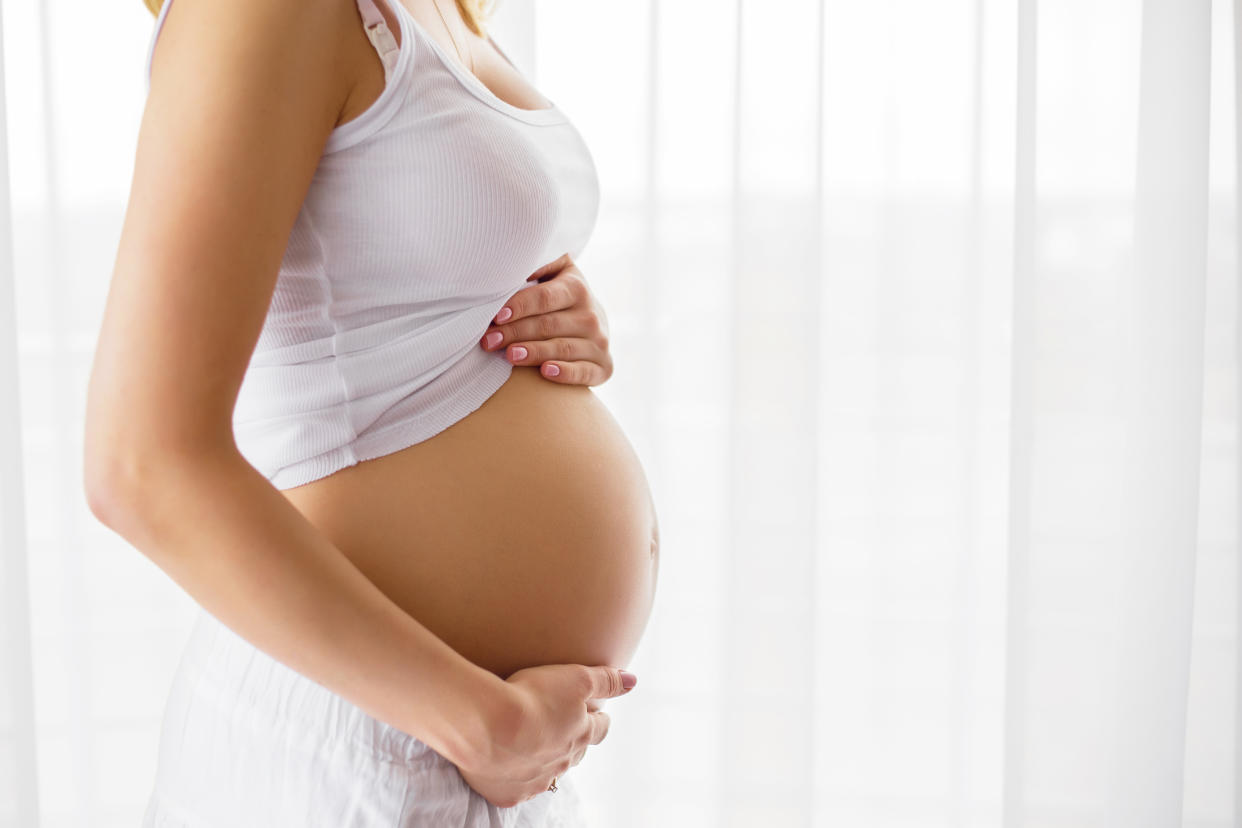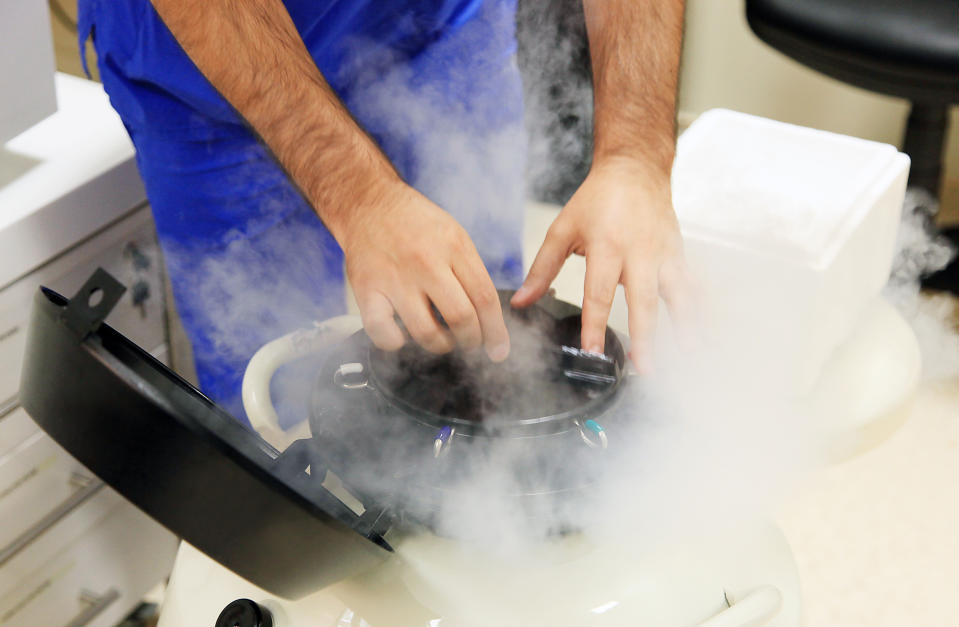Frozen eggs should be stored beyond UK's 10-year limit, urges ethics board

An ethics board is urging the UK government to extend the length of time frozen eggs can legally be stored.
Existing legislation states frozen eggs must be used within 10 years in most cases, despite experts repeatedly arguing there is no scientific reasoning behind the limit.
The destruction of healthy eggs means many women’s hopes of becoming a mother are dashed.
Read more: Freezing your eggs: everything you need to know
A report by the Nuffield Council on Bioethics argues there “appears to be few arguments against increasing the storage limit for social egg freezing from its current limit of 10 years”.
The government is considering a law change, but it is unclear when this may come into play.
Experts have praised the report, with one calling the 10-year limit “not fit for purpose”.

A woman’s fertility naturally declines with age, with the number and quality of her eggs both falling.
Despite this, a growing number of women are choosing to become mothers later in life.
In 2017, 4% of all live births in England and Wales occurred in women aged 40 to 44.
Since the 1940s, the average age of first-time mothers has increased by nearly three years.
Some women choose to freeze their eggs simply because they have not met the right partner. Others may not be financially stable enough to raise a child or may prefer to progress further in their careers before becoming a mother.
This is known as “social egg freezing” (SEF) and differs from cases where a woman has the procedure due to another treatment potentially affecting her fertility, like chemotherapy.
Read more: Baby born to cancer survivor who had immature egg frozen five years ago
Although SEF is becoming more common, the procedure made up just 1.5% of all fertility treatments in 2016.
It is also not a guarantee of motherhood, with just under one in five (18%) IVF treatments that used a patient’s own frozen eggs being successful in 2016.
Under UK law, women who have SEF can store their eggs for 10 years, after which they must be used or destroyed.
A two-year extension was introduced amid the coronavirus outbreak due to the inaccessibility of the procedure.
Women who freeze their eggs for medical reasons can extend the 10-year limit by an additional 10 years every decade, up to 55 years.
Watch: Women urged not to freeze embryos after fertility treatment
The difference in storage limits between SEF and egg freezing for medical reasons has been “heavily criticised”, wrote the Nuffield Council on Bioethics in its report Egg Freezing In The UK.
The board argued increasing the limit would encourage women to freeze their eggs at an earlier age, boosting their chance of a live birth down the line.
It would also buy women more time to decide when to use their frozen eggs, if at all.
The extension would also “address fairness” between medical egg freezing and SEF, as well as between the two sexes, according to the board.
Male fertility typically does not decline to the same extent as a woman’s “and is therefore not as affected by time limits”, it added.
Read more: Sperm donation after death should be allowed, advocates urge
The board acknowledged, however, that an extension would lead to “logistical issues”, with policymakers having to decide how frozen eggs can be stored over a longer time.
“Inappropriate marketing” may also target younger women, encouraging them to freeze their eggs, it added.
An extension may also mean more women choose to delay motherhood, leading to “public concerns”.
Nevertheless, the board summarised: “There are few arguments against increasing storage limits for SEF.
“The outcome of the current government consultation on storage limits will strongly influence the future of egg freezing/SEF.”
Several experts have expressed their support for the report.
“The UK’s 10-year egg freezing rule for SEF is not fit for purpose and this briefing highlights how we have very little reason for maintaining it any longer,” said Dr John Appleby from Lancaster University.
“Harvesting egg cells and freezing them entails a considerable investment of time, money and a person’s body.”
The egg-freezing process typically takes between two and three weeks. A woman is first tested for any infectious diseases, like HIV.
She then starts IVF, which involves up to two weeks of hormonal injections to stimulate the ovaries to produce multiple eggs. When ready, the eggs are collected under general anaesthetic or sedation.
“We should not be setting limits on the length of time this investment can last unless we have very good reasons to do so, and we do not have good reasons in the case of SEF,” said Dr Appleby.
“If the UK fails to remove the 10-year limit on SEF, there is a risk some UK patients will be forced to travel abroad in order to access the egg freezing services they want.”
Sarah Norcross from the Progress Educational Trust added: “We are delighted the UK’s leading ethics body has given the green light to revising the 10-year storage limit for social egg freezing.
“With more women than ever choosing to freeze their eggs, it is time for the law to be changed.”
Watch: Fertility treatment a postcode lottery


